Hemp Flower Age Restrictions: Legal Age Requirements in Each State
Navigating the complex landscape of hemp flower age restrictions has become increasingly important as the hemp industry continues to evolve. With the growing popularity of THCa hemp flower products, consumers and retailers alike need clear guidance on age requirements that vary significantly from state to state.
The legal framework surrounding hemp flower purchases creates a patchwork of regulations that can be confusing for both consumers and businesses. Some states follow tobacco laws with 18+ requirements, while others impose stricter cannabis-style age limits. Understanding these variations is crucial for anyone looking to legally purchase or sell hemp flower products.
THCa hemp flower age limit regulations have emerged as a critical compliance issue, with serious legal and financial consequences for violations. Whether you're a consumer wondering about your state's requirements or a retailer ensuring compliance, this comprehensive guide covers everything you need to know about age restrictions across all 50 states.
The stakes are high when it comes to age verification. Retailers face substantial fines, license revocation, and potential criminal charges for selling to minors. Consumers under the legal age may face civil penalties, product confiscation, and educational program requirements. Understanding these consequences helps everyone make informed decisions about hemp flower transactions.
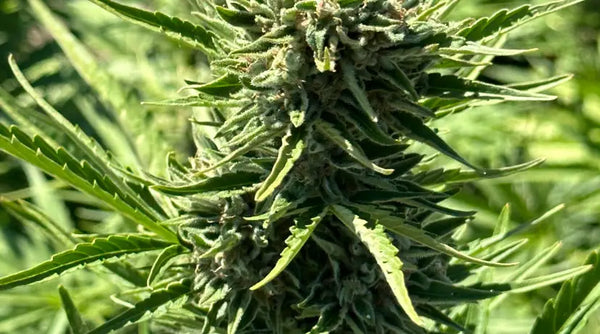
Federal Age Framework
No Federal Age Restriction
The 2018 Farm Bill revolutionized the hemp industry by removing hemp from the Controlled Substances Act, but it notably lacks specific age restrictions for hemp flower purchases. This legislative gap means that THCa hemp minimum age requirements fall entirely under state jurisdiction, creating the current patchwork of regulations.
Federal regulators classified hemp as an agricultural product rather than a controlled substance, which influences how states approach age restrictions. This classification has led many states to model their hemp flower age requirements after existing tobacco or alcohol regulations rather than creating entirely new frameworks.
The absence of federal age guidelines has created both opportunities and challenges for the hemp industry. While states have flexibility to craft regulations that fit their specific needs and values, this approach has also resulted in significant confusion for interstate commerce and consumers traveling between states with different requirements.
Tobacco and Alcohol Precedents Guide States
Most states have looked to established age restriction models when crafting their hemp flower regulations. The tobacco model (18+ in most states, 21+ in some) and the alcohol model (21+ nationwide) provide tested frameworks that states can adapt for hemp products.
States following the tobacco precedent typically view hemp flower as a smokable product similar to cigarettes, focusing on the inhalation method rather than the psychoactive potential. This approach often results in more lenient age requirements and verification procedures.
Conversely, states adopting cannabis-style regulations treat hemp flower more like marijuana products, emphasizing the potential psychoactive effects of THCa when heated. These states typically implement stricter age requirements, enhanced verification procedures, and more severe penalties for violations.
18+ Age Requirement States
Tobacco Model States
Over 30 states currently follow the tobacco model for hemp flower age restrictions, requiring customers to be at least 18 years old to purchase legal age buy hemp flower products. Major states in this category include California, Florida, New York, and Texas, representing a significant portion of the US hemp market.
California's approach exemplifies the tobacco model, treating hemp flower purchases similarly to cigarette sales. The state requires valid photo identification for anyone appearing under 30 years old and mandates that retailers post clear age restriction signage at points of sale.
Florida follows similar guidelines but adds additional requirements for online sales, including age verification through third-party services and signature confirmation upon delivery. The state also requires retailers to maintain detailed records of age verification attempts and successful transactions.
New York has implemented comprehensive retailer training requirements alongside its 18+ age restriction. All employees handling hemp flower sales must complete state-approved training programs covering age verification, product knowledge, and legal compliance requirements.
Texas takes a particularly strict approach to retailer compliance within the 18+ framework, requiring quarterly compliance audits and maintaining a public database of violations. The state also implements enhanced penalties for repeat offenders and maintains strict licensing requirements for hemp flower retailers.
Verification Requirements
Standard photo identification verification forms the backbone of compliance in 18+ states. Acceptable forms of ID typically include driver's licenses, state-issued identification cards, passports, and military identification cards. Out-of-state identification is generally accepted, though some retailers may have internal policies requiring additional verification for non-resident purchases.
Government-issued photo identification must be current and non-expired, with clear photos that match the customer's appearance. Many retailers have adopted policies requiring customers to remove masks, hats, or sunglasses during the verification process to ensure accurate identification.
Electronic age verification systems have become increasingly popular among hemp flower retailers. These systems can scan barcodes or magnetic stripes on identification cards, automatically calculating age and flagging potential issues with fake or altered documents.
Training requirements for employees handling age verification vary by state but typically include recognizing valid identification, detecting fake IDs, and understanding legal consequences of selling to minors. Many states require annual recertification and maintain databases of certified employees.
21+ Age Requirement States
Cannabis Model States
Several states have adopted 21+ age requirements for hemp flower purchases, following the cannabis model established in recreational marijuana states. Louisiana, Tennessee, Minnesota, and Virginia represent key examples of this approach, treating under 21 hemp flower purchases as serious violations.
Louisiana's implementation of 21+ requirements includes enhanced penalties for retailers and stricter licensing requirements. The state requires specialized hemp flower retail licenses separate from general retail licenses and mandates comprehensive background checks for all license holders.
Tennessee takes a unique approach by allowing 18+ purchases with medical recommendations but requiring 21+ for recreational purchases. This dual system creates additional complexity for retailers but provides access for qualifying medical patients under 21.
Minnesota has implemented some of the nation's strictest hemp flower age verification requirements, including mandatory biometric verification systems for high-volume retailers and real-time database checking against state records.
Virginia's approach emphasizes prevention through education, requiring retailers to provide informational materials about hemp flower effects and legal consequences to all customers during purchase transactions.
Medical Exemption Programs
Some 21+ states provide exemptions for qualified medical patients between 18 and 21 years old. These programs typically require physician recommendations, state registration, and ongoing medical supervision to ensure appropriate use and dosing.
Medical exemption programs often limit product types and potency levels for younger patients. Many states restrict medical patients under 21 to lower-potency products or specific formulations designed for medical use rather than recreational consumption.
Caregiver purchase permissions allow registered caregivers to purchase hemp flower products on behalf of qualifying patients under 21. These programs require extensive background checks, training requirements, and ongoing oversight to prevent diversion to non-medical use.
Physician recommendation requirements vary by state but typically require ongoing relationships between doctors and patients, specific medical conditions that may benefit from hemp flower use, and regular follow-up appointments to monitor treatment effectiveness.
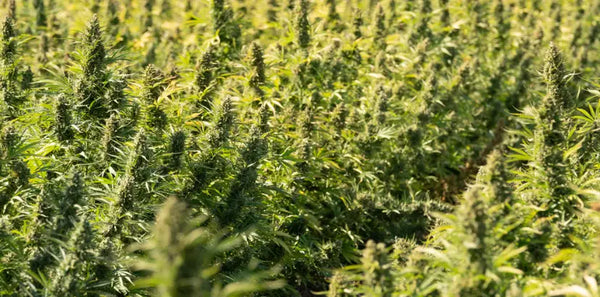
Age Verification Technology
Modern ID Scanning
Advanced identification scanning technology has revolutionized age verification in the hemp flower industry. Modern systems can read barcodes, magnetic stripes, and RFID chips embedded in government-issued identification cards, providing instant age verification and fraud detection.
Point-of-sale integration allows age verification systems to seamlessly connect with retail software, automatically recording verification attempts and maintaining compliance records. These integrated systems can flag suspicious transactions, track repeat customers, and generate compliance reports for regulatory authorities.
Real-time verification services connect to government databases to confirm identification authenticity and check for expired or revoked documents. These services can identify fake IDs, altered documents, and stolen identification cards that might otherwise pass visual inspection.
Fake identification detection features use advanced algorithms and database comparisons to identify suspicious documents. These systems can detect altered text, photo substitutions, and other common forgery techniques used to circumvent age restrictions.
Online Age Verification
Credit card age confirmation serves as a primary verification method for online hemp flower purchases. Most credit card companies require customers to be at least 18 years old, making credit card verification an effective first-line age screening tool.
Third-party verification services specialize in online age verification, using multiple data sources to confirm customer ages. These services may check credit reports, public records, and other databases to verify identity and age information provided by customers.
Identity document uploads require customers to photograph and submit government-issued identification for manual or automated review. These systems often use optical character recognition (OCR) technology to extract information from uploaded documents and compare it against customer-provided data.
Delivery requirements for online hemp flower purchases typically include adult signature confirmation and additional identification verification at the point of delivery. Some states require delivery personnel to complete age verification training and maintain records of all delivery transactions.
Penalties for Underage Sales
Retailer Consequences
Financial penalties for selling hemp flower to minors range from $1,000 to $10,000 per violation, depending on state regulations and violation history. First-time offenders typically face lower fines, while repeat violators may face maximum penalties and additional sanctions.
License suspension or revocation represents the most serious consequence for retailers violating age restrictions. Many states implement escalating penalties, with temporary suspensions for first violations and permanent revocation for repeat or egregious violations.
Criminal charges may apply for retailers with multiple violations or those demonstrating willful disregard for age restriction laws. These charges can result in personal liability for business owners and managers, potentially including jail time and permanent criminal records.
Hemp flower sales prohibition can extend beyond license revocation, with some states maintaining databases of individuals and businesses permanently banned from participating in the hemp industry. These prohibitions can affect future licensing applications and business opportunities.
Employee Liability
Personal fines for individual employees selling to minors typically range from $500 to $2,500 per violation. These fines apply directly to the employee who conducted the illegal sale, regardless of employer policies or training programs.
Training requirements often become more stringent following violations, with some states requiring additional certification programs or probationary periods for employees involved in underage sales.
Employer indemnification policies vary widely, with some employers accepting full liability for employee violations while others require employees to bear personal responsibility for compliance failures.
Career impact considerations include potential difficulty finding future employment in the hemp or cannabis industry, as many employers conduct background checks that may reveal previous compliance violations.

Underage Possession Penalties
Civil Infractions
Typical fines for underage hemp flower possession range from $50 to $500 for first-time offenders. These civil penalties are generally less severe than criminal charges but can still have significant impacts on young people's finances and records.
Product confiscation accompanies most underage possession citations, with confiscated hemp flower typically destroyed according to state regulations. Some states allow for product return to parents or guardians, while others mandate destruction regardless of circumstances.
Parent or guardian notification requirements ensure that legal guardians are informed of underage possession citations. This notification process may include details about the violation, potential consequences, and available educational or intervention programs.
Drug education programs serve as alternatives to or supplements for traditional penalties, focusing on education about legal consequences, health effects, and responsible decision-making regarding hemp flower use.
Criminal Charges
Criminal charges for simple hemp flower possession by minors are relatively rare but may apply in cases involving large quantities or distribution activities. These charges can have long-lasting impacts on educational and employment opportunities.
Large quantity implications can elevate simple possession charges to distribution or trafficking charges, which carry much more severe penalties and potential jail time even for minors.
Juvenile court proceedings handle most criminal charges involving minors, focusing on rehabilitation and education rather than punishment. However, serious violations may be transferred to adult court depending on circumstances and state laws.
Distribution charges apply when minors are found sharing or selling hemp flower to other minors, often resulting in more severe penalties and longer-lasting legal consequences.
Parental and Guardian Rights
Legal Authority
Parents and guardians generally cannot authorize underage hemp flower use in states with age restrictions, even on private property. This limitation reflects the serious legal status of age restriction violations and the priority placed on preventing youth access.
Medical exceptions are extremely rare and typically require specific state programs, physician oversight, and ongoing medical monitoring. Even in states with medical hemp programs, parental consent alone is insufficient to authorize underage use.
Custody and visitation implications can arise when one parent allows or facilitates underage hemp flower use. Courts may consider such actions when making custody decisions, particularly in contentious divorce or separation proceedings.
Child protective service concerns may arise in cases involving repeated underage hemp flower use or when parents are found facilitating access to hemp products for minors. These investigations can have serious consequences for family integrity and parental rights.
Educational Institution Policies
School Zone Restrictions
Enhanced penalties apply for hemp flower violations occurring near schools, with many states implementing zero-tolerance policies within specified distances of educational facilities. These enhanced penalties may double or triple standard fines and can result in mandatory minimum sentences.
Campus prohibitions extend beyond K-12 schools to include college and university campuses, even in states where hemp flower is otherwise legal for adults. These policies often apply regardless of student age or legal status.
Student handbook policies typically address hemp flower possession and use, with consequences ranging from warnings to expulsion depending on violation severity and institutional policies.
Extracurricular activity impacts can include suspension from sports teams, clubs, and other activities, even for violations occurring off-campus. Many schools maintain policies linking hemp flower violations to participation eligibility.
College and University Rules
Adult students aged 18+ in 21+ states face unique challenges, as they may be legally adults but still prohibited from hemp flower possession under state law. Campus policies typically align with state law rather than federal adult age definitions.
Campus housing bans are common even in states with legal hemp flower, as many institutions receive federal funding that could be jeopardized by allowing hemp products on campus property.
Federal funding implications drive many institutional policies, as colleges and universities risk losing federal financial aid and research funding if found to permit illegal drug activity on campus.
Academic disciplinary actions can include probation, suspension, or expulsion, with consequences often extending beyond immediate penalties to affect future educational and career opportunities.
Medical Use Exemptions
Pediatric Medical Programs
Limited access to hemp flower products for minors exists in some states through specialized medical programs designed for severe conditions like epilepsy or cancer. These programs typically require extensive medical documentation and ongoing physician supervision.
Severe medical conditions qualifying for pediatric hemp access usually include treatment-resistant epilepsy, cancer-related symptoms, and certain rare genetic disorders. Qualifying conditions lists are typically restrictive and require multiple medical opinions.
Physician supervision requirements include regular monitoring, dosage adjustments, and detailed record-keeping to ensure appropriate medical use and prevent diversion to recreational purposes.
Specialized product formulations for pediatric patients often differ significantly from recreational hemp flower, typically featuring lower THC content, specific CBD ratios, and delivery methods designed for medical rather than recreational use.
Industry Age Verification Standards
Best Practices
Multiple verification methods help ensure compliance and reduce the risk of underage sales. Leading retailers often implement layered approaches including visual inspection, electronic scanning, and database verification.
Staff training programs should cover legal requirements, verification procedures, and consequences of violations. Regular training updates help employees stay current with changing regulations and emerging verification technologies.
Regular compliance audits help identify potential issues before they result in violations. Many successful retailers conduct monthly or quarterly internal audits covering age verification procedures, record-keeping, and staff compliance.
Customer education initiatives can help reduce attempted underage purchases by clearly communicating age requirements and consequences. Effective education programs may include signage, website information, and point-of-sale materials.
Technology Solutions
Biometric verification systems represent the cutting edge of age verification technology, using fingerprint or facial recognition to confirm customer identity and prevent document fraud.
Blockchain identity verification offers tamper-proof verification records and can facilitate interstate commerce by providing universally recognized age verification credentials.
Marketplace integration allows online platforms to implement consistent age verification across multiple vendors, streamlining compliance and improving customer experience.
Real-time database checking connects verification systems to government and industry databases, providing instant confirmation of identification authenticity and flagging potential issues.
International Visitors
Tourist Considerations
Passport age verification is universally accepted for international visitors, though some retailers may require additional documentation or verification steps for foreign documents.
International driving permits can serve as valid identification in most states, though language barriers may complicate verification processes for documents not in English.
Tourism regulations vary by state, with some implementing specific requirements for non-resident purchases including purchase limits, identification requirements, and consumption restrictions.
Consulate documentation may be necessary for visitors from countries with limited identification documentation or for those whose primary identification documents are not recognized by automated verification systems.
Future Trends
Potential Changes
Federal age standardization remains a possibility as the hemp industry continues to mature and interstate commerce becomes more important. Industry groups and regulatory bodies are increasingly discussing the benefits of uniform age requirements.
Industry lobbying efforts focus on promoting consistent regulations that facilitate interstate commerce while maintaining appropriate youth access prevention measures. These efforts often emphasize the economic benefits of standardization.
Public health research continues to inform policy development, with ongoing studies examining the effects of hemp flower use on developing brains and the effectiveness of different age restriction approaches.
Youth access prevention remains a primary focus for regulators and industry stakeholders, with new technologies and approaches constantly being developed to improve compliance and reduce underage access.
Frequently Asked Questions
What is the most common age requirement for hemp flower purchases?
The most common age requirement is 18 years old, following tobacco regulations in over 30 states. However, several states require customers to be 21 or older, following cannabis model regulations.
Can parents buy hemp flower for their minor children?
No, parents cannot legally purchase hemp flower for minor children in states with age restrictions. Even parental consent does not override state age requirement laws, except in very limited medical exemption programs.
What happens if I'm caught with hemp flower under the legal age?
Consequences typically include fines ranging from $50-$500, product confiscation, parent notification, and potentially mandatory drug education programs. Criminal charges are rare for simple possession but possible for large quantities or distribution.
Do age verification requirements apply to online purchases?
Yes, online hemp flower retailers must implement age verification procedures including credit card verification, identity document uploads, and adult signature requirements upon delivery.
Can I use hemp flower on college campus if I'm over 18?
Campus policies typically prohibit hemp flower regardless of age due to federal funding requirements and institutional policies. Even students over the legal age in their state may face disciplinary action for campus possession.
Are there medical exemptions for minors in any states?
Very limited medical exemptions exist in some states for severe conditions like treatment-resistant epilepsy or cancer, but these require physician supervision, state registration, and specialized products rather than recreational hemp flower.
What should retailers know about age verification technology?
Modern verification systems should include ID scanning capabilities, real-time database checking, fake ID detection, and point-of-sale integration. Regular staff training and compliance audits are essential for maintaining legal compliance.
How do age restrictions affect interstate travel with hemp flower?
Travelers must comply with the laws of each state they enter. Hemp flower legal for adults in one state may be prohibited entirely in another, and age requirements can vary significantly between neighboring states.
Conclusion
Understanding hemp flower age restrictions is essential for anyone involved in the hemp industry, whether as a consumer, retailer, or industry stakeholder. The current patchwork of state regulations creates both challenges and opportunities, requiring careful attention to local laws and compliance requirements.
The predominant models—18+ following tobacco regulations and 21+ following cannabis regulations—reflect different state approaches to balancing personal freedom with youth protection. As the industry continues to evolve, we may see movement toward greater standardization, but for now, understanding your specific state requirements is crucial.
Proper age verification remains the cornerstone of legal compliance, with serious consequences for violations affecting both businesses and individuals. Whether you're looking to purchase hemp flower products or operate a hemp business, staying informed about current regulations and best practices is essential for legal compliance and industry success.
The future of hemp flower age restrictions will likely be shaped by ongoing research, industry advocacy, and evolving public attitudes toward hemp products. As this regulatory landscape continues to develop, maintaining awareness of current requirements and emerging trends will be crucial for all stakeholders in the hemp flower market.

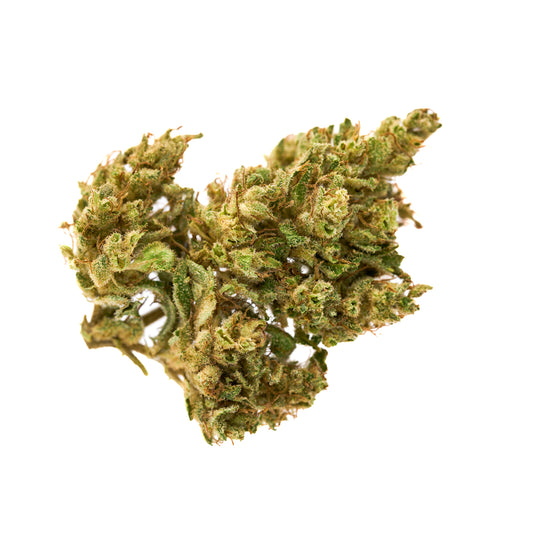
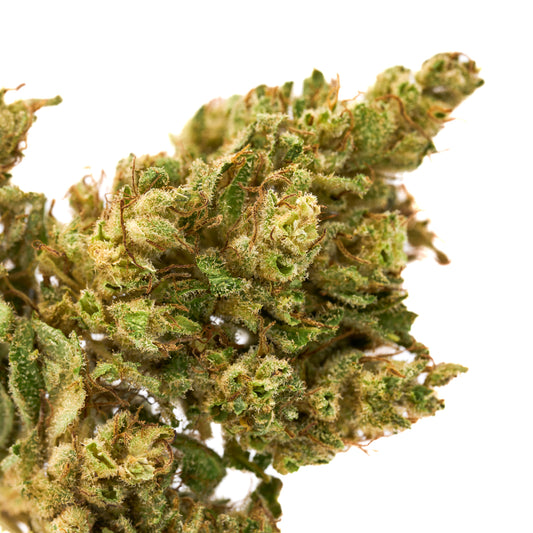
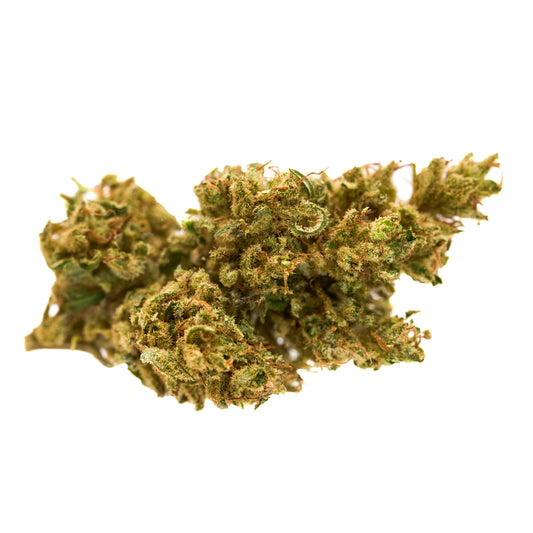
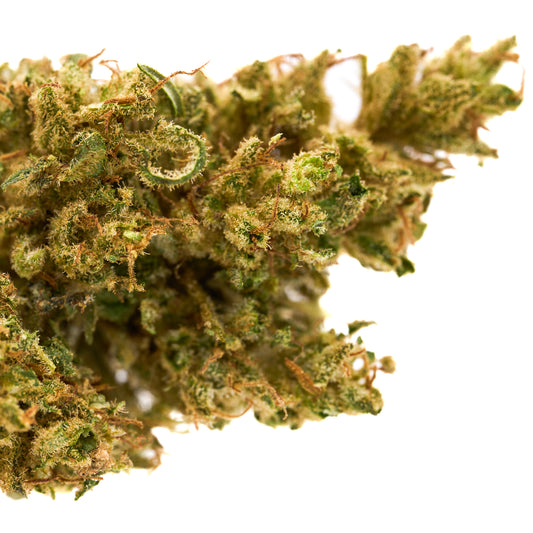
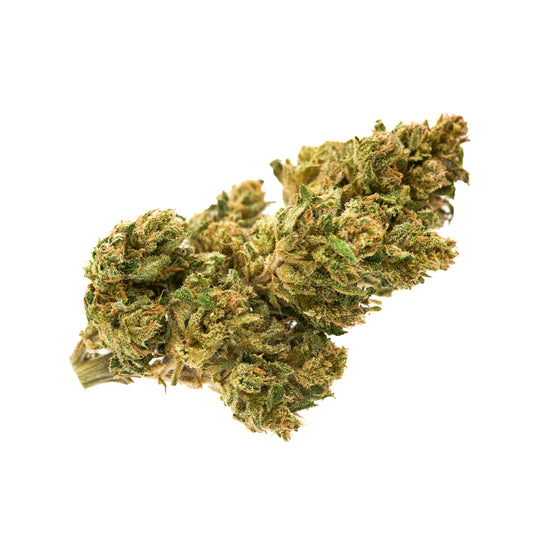
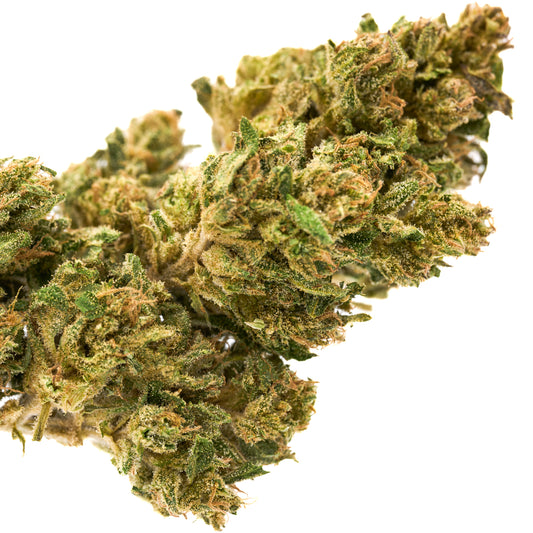



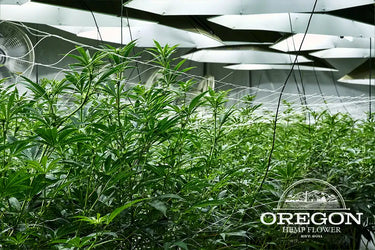

Leave a comment
Please note, comments need to be approved before they are published.